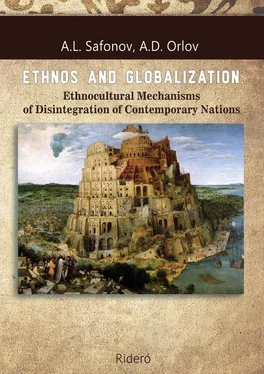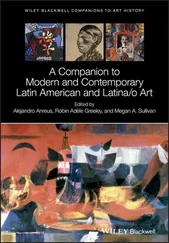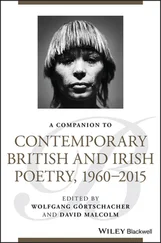ETHNOS AND GLOBALIZATION: Ethnocultural Mechanisms of Disintegration of Contemporary Nations
Monograph
A. L. Safonov
A. D. Orlov
electronic version of the monograph:
Safonov A. L., Orlov A. D.
Ethnos and globalization: Ethnocultural mechanisms of disintegration
of contemporary nations // Andrey Leonidovich Safonov, Aleksandr Dmitriyevich
Orlov. – Ekaterinburg: Ridero, 2018. – 300 p.
Authors:
Andrey Leonidovich Safonov, Dr. Sc.
Aleksandr Dmitr. Orlov, PhD.
Examiners:
Vladimir Svyatoslavovich Nikolsky, Dr. Sc.
Makhach Mustafayevich Vagabov, Dr. Sc.
Vadim Aleksandrovich Demin, Dr. Sc.
Translator Lidia Ashikhmina
Translator Irina Godovikova
© A. L. Safonov, 2018
© A. D. Orlov, 2018
© Lidia Ashikhmina, translation, 2018
© Irina Godovikova, translation, 2018
ISBN 978-5-4490-7095-1
Created with Ridero smart publishing system
They said to each other, “Come, let’s make bricks and bake them thoroughly.” They used brick instead of stone, and tar for mortar. Then they said, “Come, let us build ourselves a city, with a tower that reaches to the heavens, so that we may make a name for ourselves; otherwise we will be scattered over the face of the whole earth.”
But the Lord came down to see the city and the tower the people were building. The Lord said, “If as one people speaking the same language they have begun to do this, then nothing they plan to do will be impossible for them. Come, let us go down and confuse their language so they will not understand each other.”
So the Lord scattered them from there over all the earth, and they stopped building the city. That is why it was called Babel – because there the Lord confused the language of the whole world. From there the Lord scattered them over the face of the whole earth.
(Genesis 11: 1—9)
Most long-term forecasts of global development at the end of the twentieth century that were based on widely accepted scientific approaches and empirical patterns predicted the evolution of globalization as the establishment of a new global social community (a social entity) of a supranational kind and the all-encompassing dominance of cultural and political unification and convergence.
However, the current reality of globalization demonstrates that a global social community is not being formed despite the establishment of a global market, global digital (information) space, and manifold growth of temporary and permanent migration. Furthermore, as economic and informational globalization is expanding, the fragmentation and differentiation of cultures, civilizations, ethnicities and confessions, the “ethnicization’ of the collective consciousness, singling out ethnic identity as the leading one, is skyrocketing universally.
That means that, besides nation states and transnational corporations, global development entities (actors) are joined by an increasing number of social entities of a non-economic and non-state (non-political) nature, including ethnic communities (ethnoses).
Futurologists have had to face the unexpected: the growth of divergent tendencies; the growing number of actors participating in global processes; the revitalization and acceleration of the influence of ethnic and religious communities; the exacerbation of old ethnic and religious conflicts and the appearance of new ones. This contradicts the concepts that were formed in the twentieth century that postulate that humankind’s progress towards convergence, unification or universalization is irreversible; such concepts were based on the idea of continuous ascending progress, a multi-stage approach and economic determinism.
Therefore, social sciences are facing not only a fundamental scientific problem, but also the pressing social and pragmatic task of creating of a new paradigm of sociogenesis that will function in a brand new environment of globalization in a new historical age and that will allow analysis and prediction of the evolution of the leading social processes of our time, including ethnic and cultural phenomena.
Such leading ethnic and cultural phenomena that require theoretical understanding in terms of their social and philosophical positioning include the re-emergence of ethnic communities, ethnicity and ethnic consciousness that is taking place amid the crisis and erosion of modern nationalities.
The concept of globalization as a category of a wider sociopolitical and scientific discourse became widespread in the scientific community after 1991, when the falling apart of the USSR and of the system of its allies eliminated all obstacles to the establishment of a global market of goods and services, including media, allowing significant growth of international trade and migration as well as the global implementation of neoliberal reforms that had been tested not long before that by Ronald Reagan and Margaret Thatcher.
That explains why globalization was seen generally (above all, by Henry Kissinger and Margaret Thatcher, 1 1 Thatcher, Margaret. Statecraft: Strategies for a Changing World / Trans. M. Albina Publisher, 2003. – 504 p.
its creators and supporters) as a politically determined and largely economic process of spread and universalization of the neoliberal variant of the western economic model and its global victory. All of this created an impression of the imminence of the creation of a global supracommunity, similar to the “end of history’ 2 2 Fukuyama, Francis. The End of History and the Last Man. M.: Yermak, AST, 2005. – 592 p.
explored by Fukuyama and the creation of the global empire 3 3 Hardt, M., Negri, A. Empire / Translation from English edited by G. V. Kamenskaya, M. S. Fetisov – M.: Praksis, 2004. – 440 p.
with a Euro-Atlantic civilizational nucleus and several circles of dependent subject-less periphery.
However, as the results of the establishment of the “united world’ have been manifesting themselves, the need has arisen to study a brand new social reality that is not limited to the phenomena of economic nature and trends of cultural unification and westernization.
The basics of the sociology of globalization were laid down in the works by Wallerstein, 4 4 Wallerstein, I. The End of the World as we Know it: Social Science for the Twenty-First Century / Immanuel Wallerstein. M.: Logos, 2004. – 368 p.
Bell, 5 5 Bell, D. The Coming of Post-Industrial Society: A Venture in Social Forecasting. M.: Academia, 1999. – 956 p.
Giddens 6 6 Giddens, A. Runaway World: How Globalization is Reshaping Our Lives. M., 2004. – 340 p.
, etc.
Philosophers, such as Kant, Marx, Teilhard de Chardin, Vernadsky, Russell, Toynbee, Jaspers etc., who were developing and substantiating the concept of the gradual ascension of humankind to the united global community were the forerunners of modern studies of globalistics.
The geo-economic and geopolitical aspects of globalization have been studied in the works by Buzgalin and Kolganov, 7 7 Buzgalin, A. V., Kolganov, A. I. Global Capital. M.: Editorial URSS, 2004. – 512 p.
Delyagin, 8 8 Delyagin, M. G. Global Crisis. General Theory of Globalization. Course of Lectures. M.: Ifra-M, 2003. – 768 p.
, Inozemtsev, 9 9 Inosemtsev, V. L. Democracy: forced and desired. Successes and failures of democratization on the brink of thousand years// Voprosy filosofii. 2006. №9 – p. 34—46.
Utkin 10 10 Utkin, А. I. New Global Order. M.: Algoritm, Eksmo, 2006. – 640 p.
and others.
The influence of globalization on the national state and state institutes has been studied by Beck, 11 11 Beck, Ulrich. Power in the Global Age: A New Global Political Economy. M.: Progress-Traditsiya, 2007. – 464 p.
Читать дальше












